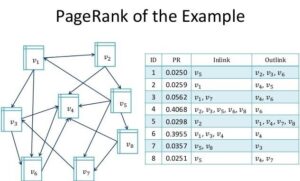What do we comprehend about Google ranking evaluation? We tend to know a lot, but really, we know little.
Since the launching of Google, the link metrics have been the predetermining aspects of Google’s ranking evaluation. But is the same way applicable in 2020? Or, is there anything that has surpassed links as a core authority ranking signal?
Presumably, it is hard to find awesome SEO results without taking time to create a good inbound link profile. Authority and relevance are the two primary deciding aspects of website rankings. Authority strongly depends on the quality and quantity of the links directed to a certain domain or page.
Many individuals are already aware of Google’s major transformation in the past few years. The changes made altered its SERP layout, providing improved voice-search features and notably changing its ranking processes. Consequently, having transformed its evaluation of link quality, the links still remain the core pillar of SEO.
So, how does Google evaluate the link and why does it rely on link evaluation in its ranking calculation?
The concept behind Google Evaluation links and Google ranking
To comprehend this incentive, we will need to revisit the initial iteration of the PageRank and signature calculation of Google search. Usually, it utilizes the available quality of links directing to a website, to evaluate where to estimate its authoritativeness.
To be clear, let’s have 8 websites labelled V1-V8 as shown below. Almost every website links to V4 while some links to website V6. Others have a single site pointing to them. In this scenario, the V4 is most likely going to rank higher for a relevant question than the rest, with the website V6 as a runner-up.
Let assume another two websites were introduced, V9 and V10. When site V9 is linked to V1, V2, V5, and V8, which don’t possess a lot of authority links that does not mean it will rank higher than V10 when linked to V4 or V6.

What is the weakness of this evaluation concept?
The way pages are ranked was tailored to be a natural technique to help estimate the authority links (depending on what unbiased third parties assume of different websites). Gradually, in a closed technique, the highly authoritative and reliable websites would rank to the top.
The biggest concern about this concept is that it is not a closed technique. When webmasters get more ideas about the ranking page, they started coming up with manipulative schemes to help boost their website authority. A sample of what they did was creating both scam links and software that automatically secured links on thousands of unsuspicious sites at a click of a button. This sabotaged Google’s objective and forced them to create a number of checks and balances.
The increasing sequence of complexity
Over the past few years, Google has been working hard to fight rank manipulators by punishing the offenders. This was done through penalizing or blacklisting any individual engaging in a suspicious link scheme. Thereafter, they continued onto more skilful developments that moulded the execution used by Google to evaluate the authority link in the first place.
Among the skillful development made was Google Penguin. This was tailored to remake the quality standards considered by Google for the links. By use of the latest technology, Google could find out if the quality of the links appeared manipulative or natural. This idea monitored the link-building techniques to change while not remaking the essential notion behind the PageRank.
SEO strategy and the state of the site in 2020
Currently, link building should prioritize the level of naturalness and how useful it is to the users encountering them. That’s the reason link building appears in two forms: Manual link building and link attraction.
Manual link building is the tactic of linking a site on a high-authority website. Link attraction is the tactic of developing and promoting content, hoping that anyone reading can naturally link to their site.
Although webmasters are working tirelessly to manipulate their ranking, there are available checks and balances secured to monitor these ill tactics. Keep in mind that the link attraction technique will not help you attract any links, not unless you invest in top-notch content. Similarly, manual link building will also not help you attract links, not unless the quality of the content is great.
If you’re looking for Google Ads Services, then check out Tillison Consulting, they provide Google Ads services for a variety of different business sectors. Whether you’re looking for Google Ads services for Wedding Venues, Events, Law Firms and many more, they have Google Ads specialists to help you improve your online presence.

Be the first to comment on "How Does Google Evaluate Links For SEO in 2020?"